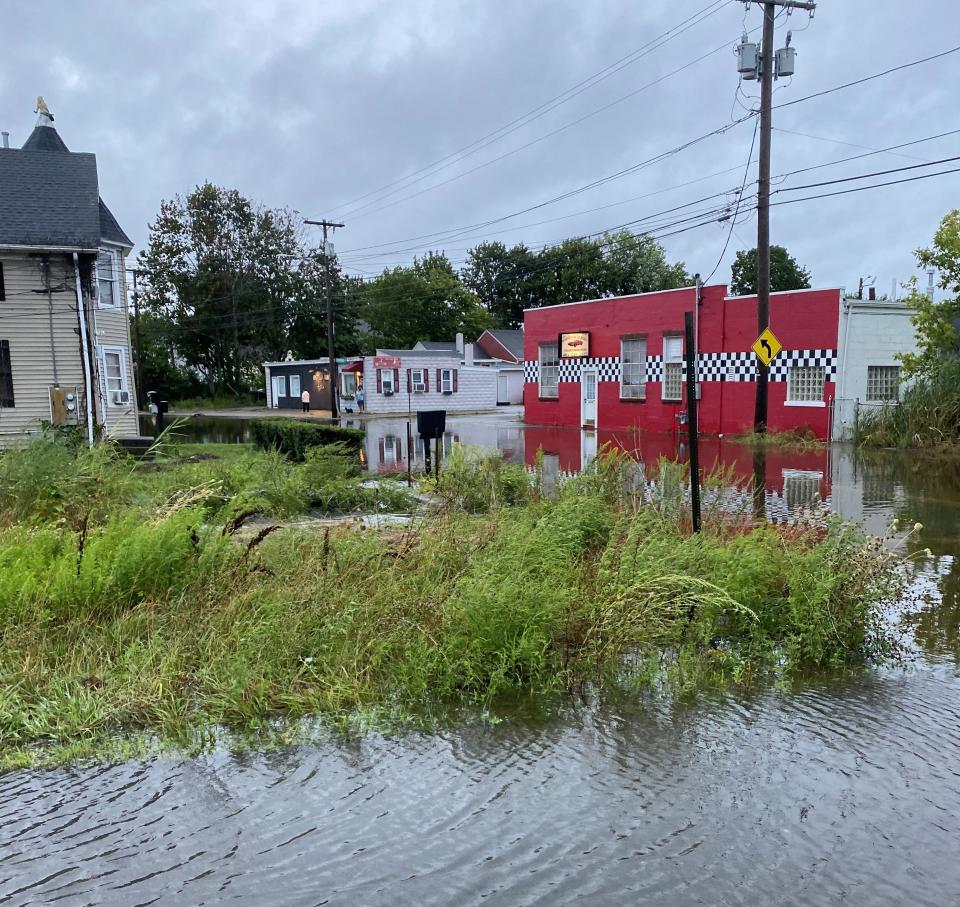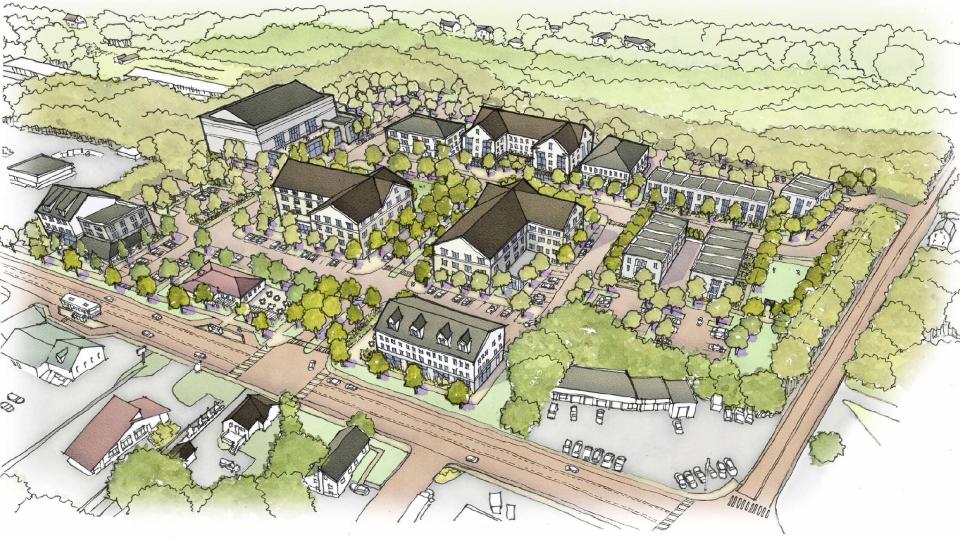Warren official tells U.S. Senate panel climate change threatens character of small towns
Climate change is already costing Warren money.
Last year, the little waterfront town in the East Bay completed a $22-million project to elevate its wastewater-treatment plant above rising seas. The debt service alone on that work is about a fifth of the operating budget for this community of fewer than 11,000 people.
That’s not all the town must do to adapt to higher waters. Pump stations need to be lifted, portions of flood-prone roads torn out and, in a first for any municipality in Rhode Island, Warren is considering relocating an entire neighborhood to drier ground.
Town Manager Kate Michaud detailed the town’s financial challenges at a U.S. Senate hearing Wednesday chaired by Sen. Sheldon Whitehouse, the Rhode Island Democrat who is outspoken on the threats posed by the changing climate.
“I believe Warren is similar to many small towns around the country in that we have increasing needs, not just climate-related but also social-related and economic development-related, and it’s a very tough competition for the small amount of funds that we have,” Michaud said. “We are spending considerably to protect our coastal features and our coastal facilities, but sometimes it is at the expense of other items.”
More on Warren and climate change:This RI neighborhood will soon be underwater forever. Can it be saved?

Whitehouse spotlights how climate change threatens the economy
She spoke to the Senate Committee on the Budget at the invitation of Whitehouse, its new chairman. It was the second hearing in the last two weeks on the costs of climate change held by the budget committee.
Over the last decade, Whitehouse has gained reputation as a climate champion by delivering his “Time to Wake Up” speeches on the Senate floor, 286 of them so far. He’s made it clear that he wants to use his new role in charge of the committee to shine a light on how climate change is threatening the nation’s economy.
Last month, at the first hearing he presided over, experts gave a big-picture view of what’s at stake; the committee plans to drill down into specific issues over time. Wednesday’s hearing was focused on sea-level rise and coastal communities.
Whitehouse painted a gloomy picture for owners of properties at risk of flooding.
“For most American households, their greatest wealth is their home,” Whitehouse said. “As homes and businesses in coastal communities face more frequent sunny-day flooding, and wetter and more-violent ocean storms, insurance will become more expensive and harder to find. Mortgages depend on insurance, so lending will suffer. Coastal communities will become harder places to live and work, and real estate values and local tax bases will decline.”
More:A $138-million relocation plan for Warren's flood-prone neighborhood
But not everyone on the committee agrees that climate change is such an urgent issue. Their point of view was represented by witnesses that included Marlo Lewis, a senior fellow with the libertarian Competitive Enterprise Institute, who argued that society will find ways to adapt to rising seas and that economic growth shouldn’t be hindered by climate regulations.
Sen. Ron Johnson, Republican of Wisconsin, questioned why the committee is devoting so much attention to climate change when, he argued, it should be looking at more pressing concerns, such as ways to manage the national debt.
“I really think the budget committee should be focusing on the budget and focusing on that calamity that is roaring toward us,” he said.
Whitehouse shot back, “I think we are focusing on the budget by focusing on the sea-level rise calamity that is roaring towards us.”

Studies find millions more properties will be at risk of flooding
To that point, Matthew Eby, founder and CEO of the First Street Foundation, presented research by his organization that found that 14.6 million properties are currently at risk of flooding in an extreme storm and that the number will rise to 16.2 million by 2050 because of climate-change impacts. Total annual flood losses estimated at $13.3 billion today will grow to $18.7 billion in 30 years, First Street has also found.
Another witness, Sean Becketti, the former chief economist for Freddie Mac, has warned that losses from flooding “are likely to be greater in total than those experienced in the housing crisis and the Great Recession.” At the hearing, he detailed how a new calamity could unfold if lenders stop offering mortgages in threatened areas and insurance companies pull back on policies.
“It was a long time before housing values came back, but they did come back,” he said of the 2008 financial crisis. “But this is a different type of dynamic, where properties are probably physically not able to come back. And so this is equity that is lost forever.”
Warren is trying to head off such a disaster with its proposal to buy out hundreds of property owners in the Market Street neighborhood near the Warren River and relocate residents and businesses to an underutilized strip of Metacom Avenue.
It would be a huge change to the town, Michaud acknowledged. But there may be no other option.
“The great thing about living in a town like Warren is the sense of community,” she said. “And climate change is really a threat to that. It’s a threat to the sense of community that has existed in Warren for centuries. We really want to see if there’s anything that we can do to preserve that sense of community going forward while preparing for the eventuality of climate change.”
This article originally appeared on The Providence Journal: Climate change in RI: RI town leader tells Senate of climate change's cost

